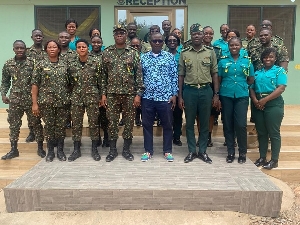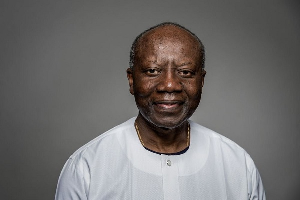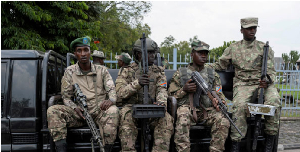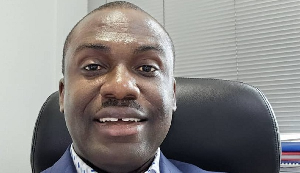The Commission on Human Rights and Administrative Justice of Weija-Gbawe as part of their mandate in Article 218 (f) organized human rights training for the officers and men of the Ghana Immigration Service, Weija Sector Command.
The training programme was organized for different Shifts that is, Shifts A to C.
Shift ‘A’ commenced from February 6 to 8, 2024 while Shift ‘B’ began from February 12 to 13 2024.
In a similar vein, the last group which is Shift 'C' started from February 14 to 16, 2024.
Among the topics treated were the three mandates of the commission and ethics of public servants, upgrading, promotion, and termination of appointments, code of conduct for public servants under chapter 24 of the 1992 Constitution, discrimination and gender-based violence at the workplace, the meaning of corruption from classical to criminological explanation, and among others.
In his opening address, the Sector Commander for the Weija Sector, Chief Superintendent Richard Cofie underscored that human rights education is a never-ending process that must be part of life-long learning opportunities for all the officers since the training forms part of the Service’s Strategic Plan to build the capacity of officers.
Frederick Obosu, the Deputy Superintendent of Immigration Service, who happens to be the second in command remarked that the ultimate goal of the training is to form a good attitude towards work and provide knowledge on human rights, administrative justice, and corruption which will lead to good practices and integrity in the course of performing public service duties.
The facilitator who doubles as the Municipal Director of Weija-Gbawe Municipal Office, Frank Kwabena Owusu reechoed the definition of corruption by the former Secretary General of the United Nations, the late Kofi Annan.
According to Kofi Annan, corruption is an insidious plaque that has a wide range of corrosive effects on societies.
Mr. Owusu, for purposes of NACAP, defined corruption as the misuse of entrusted power for private gain. He said corruption is endemic in Ghana and permeates both public and private sectors.
Admonishing Ghana Immigration Service Officers, Frank Kwabena Owusu urged them not to demand bribes and extort monies from persons accessing their services.
The Municipal Director in elucidating causes of corruption stated the causes of corruption which are institutional weakness, poor ethical standards including limited commitment to the values of integrity and self-discipline, skewed incentives structure, and insufficient enforcement of laws within patrimonial social and political contexts.
Frank Kwabena Owusu posited that the National Anti-Corruption Action Plan (NACAP) is a policy document that transcends political boundaries and tackles corruption holistically through prevention, education, and enforcement.
He underscored that combating corruption requires strong collective efforts from different sectors of society acting in coordinated ways.
Touching on upgrading, promotion, and termination of appointment, Mr. Owusu emphasized that employers are conferred some rights that are ethical, pragmatic, and legal to act without the permission of others.
According to him, those rights conferred on employers are to make them accountable and responsible for all their actions.
He enlightened the officers to assert their rights by invoking Article 23 of the 1992 Constitution of Ghana which states "Administrative bodies and administrative officials shall act fairly and reasonably and comply with the requirements imposed on them by law and persons aggrieved by the exercise of such acts and decisions shall have the right to seek redress before a court or other tribunal.”
In a related development, the Municipal Director enumerated that there are guidelines that are provided in the constitution on how public officers should perform their duties to transparency and accountability.
He said the code of conduct for public officers is enshrined in chapter 24 of the 1992 Constitution.
In referencing Article 284 of the Constitution, Mr. Owusu stated that; "A public officer shall not put himself in a position where his interest conflicts or is likely to conflict with the performance of the functions of his office".
In his concluding remarks, Frank Kwabena Owusu implored the officers of Ghana Immigration Service to among other things and by Article 286(7) of the 1992 Constitution bear true faith and allegiance to the Republic of Ghana, uphold the sovereignty and integrity of Ghana, preserve, protect and defend the Constitution of Ghana.
Regional News of Monday, 19 February 2024
Source: CHRAJ Weija













